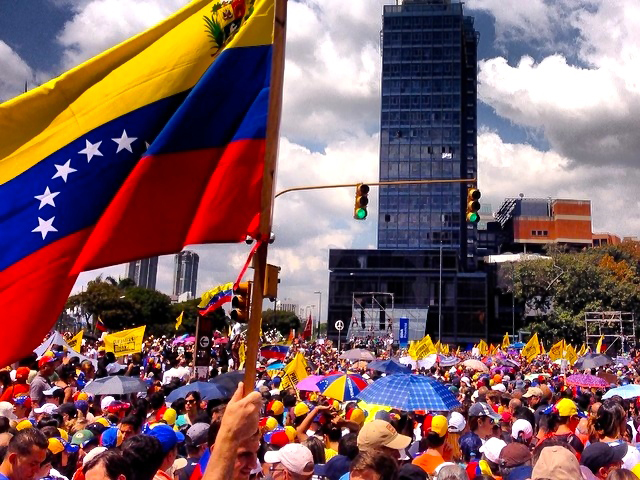While the uprising in Venezuela is getting lots less news coverage than the turmoil in Ukraine, the outcome is of equal importance — if not more — to the United States.
Why? Geography.
Quite simply, though not understating the importance of the results of “East versus West” in Ukraine, Venezue-la is in our hemisphere and what happens there could impact a lot here.
Though there are fewer headlines about Venezue-la today than when fiery, strongman Hugo Chavez was alive and in power, the country still causes problems for U.S. interests.
In other words, we shouldn’t be passive about what’s going on in?Venezuela.
For example, fueled by communist Cuban ideology, Venezuela is still the source of virulent anti-Americanism in Latin America. Influenced by Caracas, Latin American capitals have veered left politically and are less friendly to Washington in recent years.
Venezuela also leads ALBA, a socialist political and economic grouping made up of Cuba, Nicaragua, Ecuador and Bolivia, among others; Venezuelan petro-dollars have also helped keep regimes like that of Cuba’s Castro brothers in power.
Havana is grateful to Caracas, of course, providing plenty of security personnel to assist Venezuela’s military and intelligence services, including those cracking down on the peaceful protesters.
If anyone knows how to run a police state, it’s the Cubans.
There are also continuing concerns about Venezuela and the narcotics trade. Just last fall, the United States named Venezuela a major drug transit country for caches of Colombian cocaine.
In addition, elements of Venezuela’s security forces may have facilitated the flow of some of these narcotics overseas, including to the United States, according to our State Department.
Over the years, the U.S. Treasury Department has actually designated a number of senior Venezuelan government officials as “Foreign Narcotics Kingpins.”
In some cases, Venezuelan officials and security forces reportedly have assisted terrorist groups such as the FARC and ELN in trafficking the narcotics that fund their insurgency against neighboring Colombia.
In fact, in the past there has been a movement in Congress calling for the Obama administration to designate Venezuela a state sponsor of terrorism due to its tight ties with the FARC.
And speaking of terrorist ties,?Venezuela now has the welcome mat out for Lebanon’s Hezbollah (an active player in the Syrian civil war). As we all know, Hezbollah is no fan of the United States — but now lurks nearby.
Equally troubling is Venezuela’s chumminess with Iran. Caracas has opened doors for Tehran in Latin America where Iran is steadily gaining influence. It has also helped Tehran circumvent punitive economic sanctions over its nuclear program.
Like Ukrainians, Venezuelans are fighting for liberty and free markets. More specifically, Venezuelans want to overcome the “Chavista” brand of bad governance evidenced in political repression, high crime rates and economic hardship.
A victory for the forces of political, economic and social freedom will mean Venezuela will be a better partner for the United States in preserving and advancing peace, prosperity and security in this hemisphere.
Freedom-loving Venezue-lans deserve our support.
Peter Brookes is a Heritage Foundation senior fellow and a former deputy assistant secretary of defense. Follow him on Twitter: @Brookes_Peter.
































4 Replies to “Why Americans Should Care about Venezuela’s Fight for Freedom”